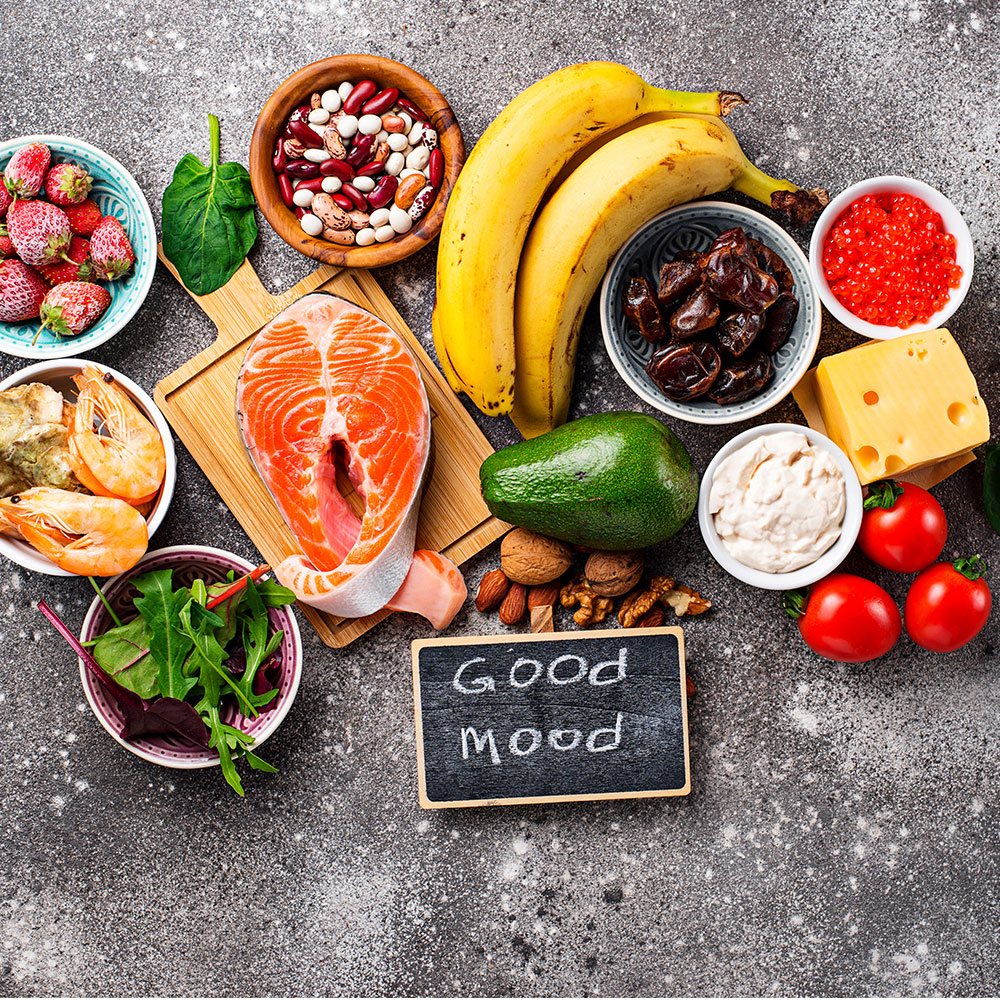If you find yourself cranky, irritable, and quick to snap at friends, family, and coworkers — a better eating plan may be just what you need! The following strategies will stabilize your blood sugars and hopefully level out your mood.
- Eat every 4 to 5 hours — Eating consistently throughout the day provides your brain and body with a constant source of fuel. This 4-5 hour eating strategy can dramatically prevent dips in your blood sugar levels. Some people with diagnosed hypoglycemia may need to eat even more frequently (every 2-3 hours).
- Limit refined carbohydrates to help lessen volatile blood sugar swings — Concentrated sources of sugar like soda, candy, fruit juice, jam, and syrup can create radical spikes (and drops!) in your blood sugar — which leaves you feeling cranky and tired. And although refined, white starch like white bread, crackers, bagels, and rice do not naturally contain sugar compounds, they are metabolized into sugar very quickly and often can create the same affect.
- Incorporate soluble fiber — Foods rich in soluble fiber have the ability to slow down the absorption of sugar in your blood and therefore, lessen blood sugar and mood swings. Incorporate oats, brown rice, barley, apples, pears, strawberries, oranges, sweet potatoes, carrots, peas, and beans into your diet.
- Incorporate protein with meals and snacks (whenever possible) — The addition of protein to a meal will help slow the absorption of carbohydrate in the blood. This can help leave you feeling upbeat and productive for hours after eating.
An additional nutrient worth considering:
- Omega 3 Fats — Significant work is being conducted in the area of omega 3 fatty acids on mental performance. Omega 3 fatty acids are present in the brain at higher levels than any other part of the body, and although this area has not been thoroughly researched, several review papers fully support the omega 3 use in psychiatry. Of particular interest is the ability of omega 3 fats to be mood lifting and perhaps help alleviate depression. Certainly a nutrient worth considering — but always speak with your physician before starting with supplements.Aim for a daily serving of foods rich in omega 3 fats — oily fish, ground flaxseeds, canola oil, walnuts, omega 3 fortified eggs, and other fortified food products.

